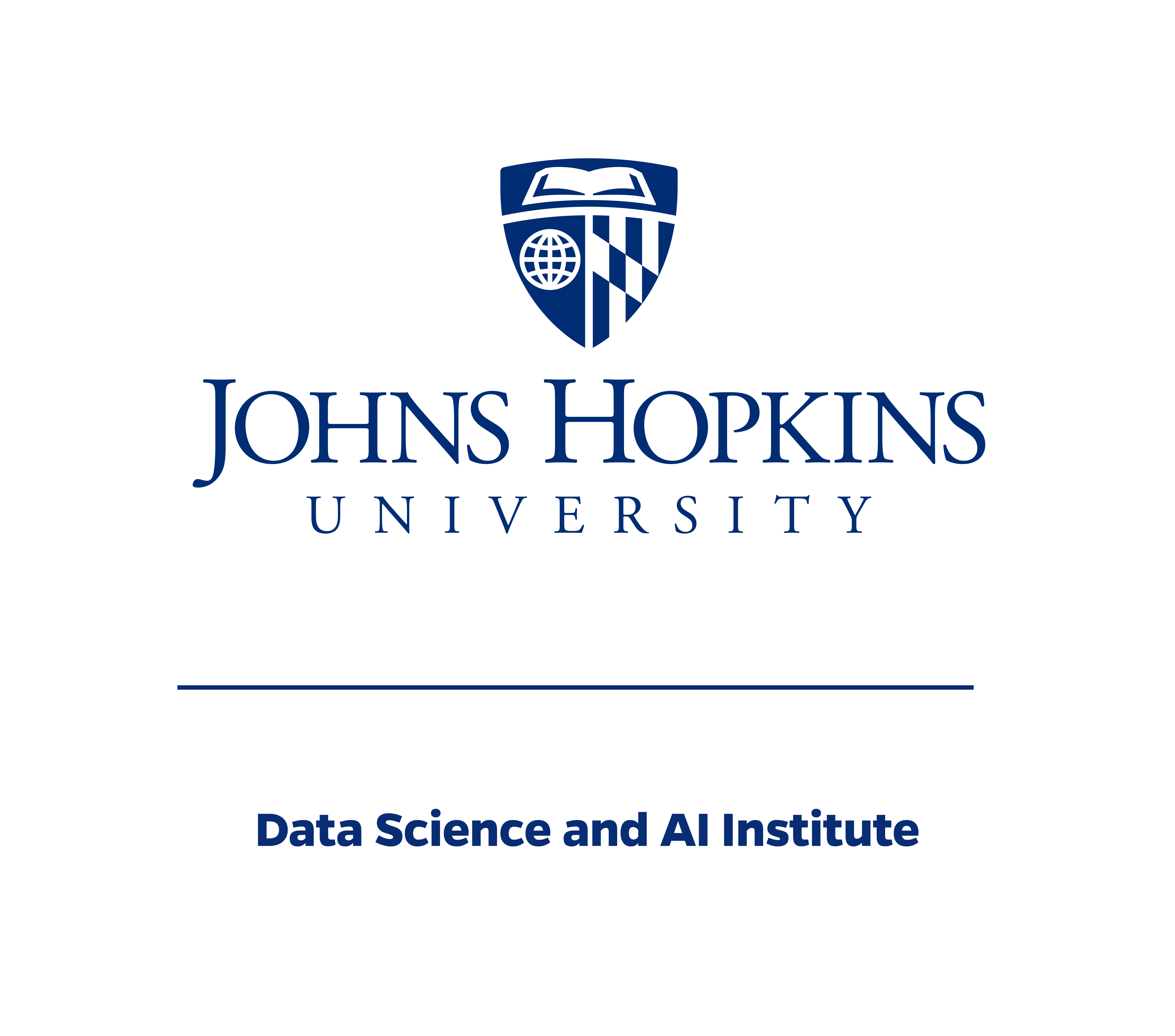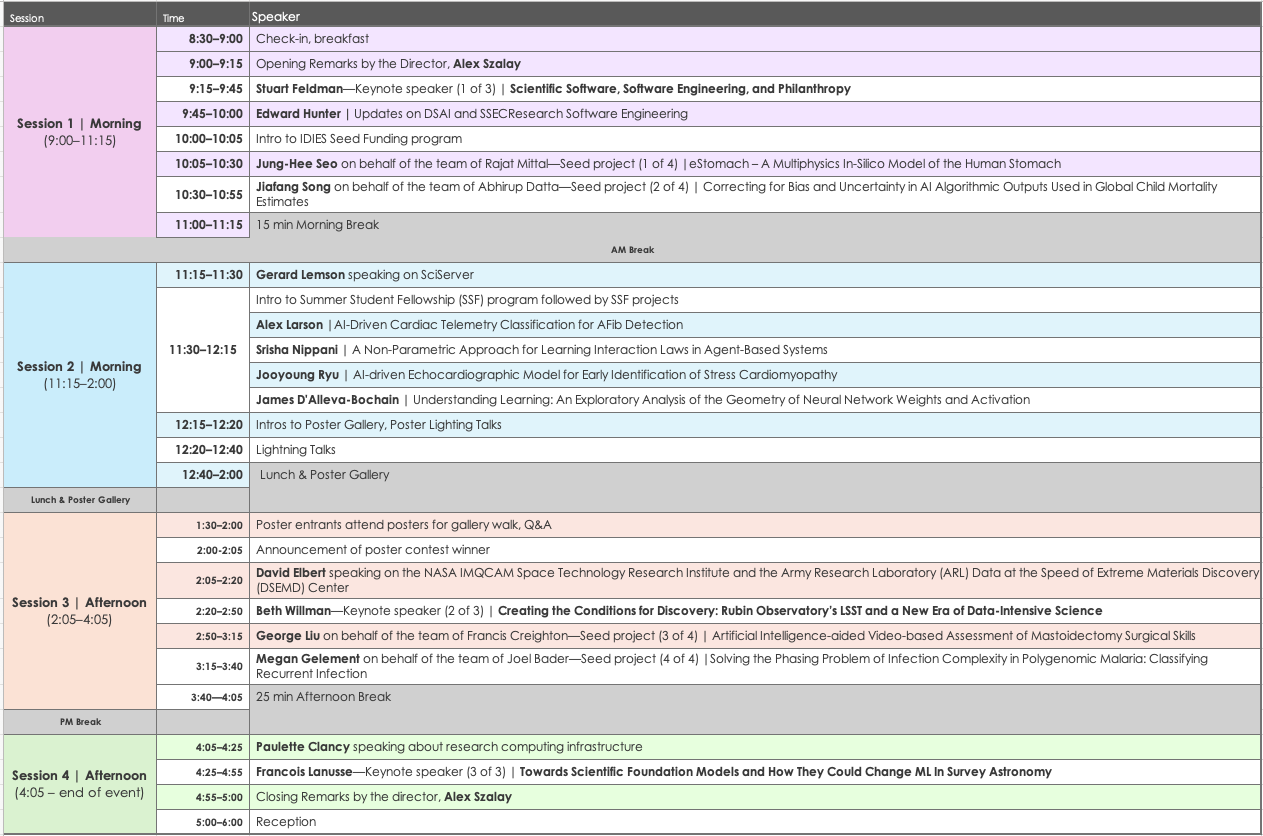2025 IDIES Annual Symposium
the 2025 IDIES ANNUAL REVIEW is here!
Thursday, October 16th, 2025,
Scott-Bates Commons, Salon B–C
8:30am–5:00pm
Homewood Campus
3301 N Charles St
Event registration closes 12am Wed. Oct 15.
Poster registration closes 12am Tues. Oct. 14.
If registering a poster you must also register for the event.
Where Big IDIES Come Together
Register today to attend the Institute for Data-Intensive Engineering and Science (IDIES) Annual Symposium for a full day of big-data themed talks and project updates.
The IDIES Annual Symposium aims to bring together experts in the theoretical foundations, development, and application of data-intensive technologies and analysis to share discoveries, practical ideas, and insights as they relate to big data research.
In our effort to promote interdisciplinary collaborations, we invite everyone—from our Johns Hopkins affiliates to governmental agencies, local organizations, non-profits, and beyond—with an interest in data science and big data, especially as they pertain to current or prospective research, to attend this symposium.
We’re sorry—registration for this event is now closed.
Keynote Speakers

Stuart Feldman
Chief Science Officer, President
Schmidt Sciences
Extended Bio
Stuart Feldman is the president of Schmidt Sciences. Schmidt Sciences financially supports the Scientific Software Engineering Center (SSEC) at Johns Hopkins as part of their Virtual Institutes for Scientific Software (VISS) initiative. He also created the first Fortran compiler while at the lab responsible for creating UNIX. The compiler allowed researchers to use standard mathematical notation as opposed to coding familiar only to programmers.
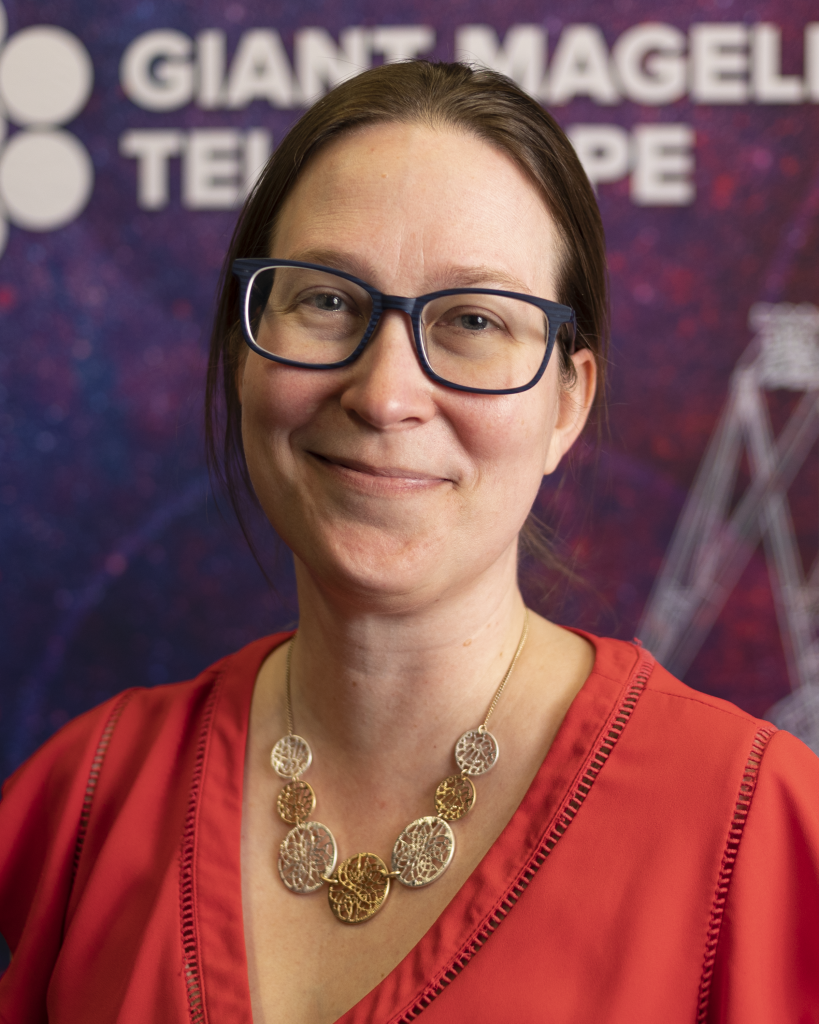
Beth Willman
Chief Executive Officer
LSST Discovery Alliance
Extended Bio
Beth Willman, is the CEO of the LSST Discovery Alliance, the org aiming to ensure that any scientist with an excellent question for Rubin Observatory’s LSST has access to the resources needed to answer it. She discovered the first known ultra-faint dwarf galaxies, including Willman 1, now known to be the most common type of galaxy in the Universe.

François Lanusse
Cosmologist / Astrostatistician
The French National Centre for Scientific Research, Flatiron Institute
Extended Bio
François Lanusse is a cosmologist and astrostatistician at the Centre National de la Recherche Scientifique/French National Centre for Scientific Research (CNRS) and guest researcher of the Flatiron Institute.His Polymathic AI project for astronomical observations was one of the inaugural projects to utilize France’s Jean Zay supercomputer.
Seed Funding PIs*
The IDIES seed funding initiative provides $25,000 in funding for data-intensive computing projects that (a) involve areas relevant to IDIES and JHU institutional research priorities; (b) are multidisciplinary; and (c) build ideas and teams with good prospects for successful proposals to attract external research support by leveraging IDIES intellectual and physical infrastructure.
*Members from each of the seed PIs respective teams will be presenting on their behalf.
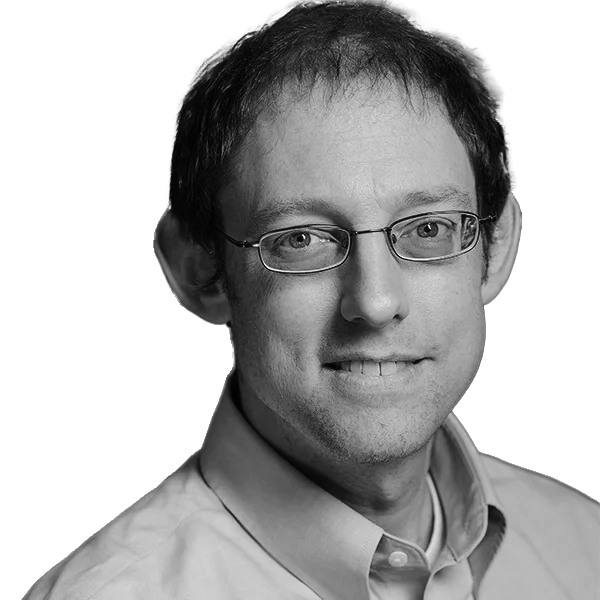
Joel Bader
Professor, Institute for Computational Medicine, Whiting School of Engineering Department; Biomedical Engineering, School of Medicine
Solving the Phasing Problem of Infection Complexity in Polygenomic Malaria with Machine Learning
Presented by Megan Gelement
Extended Bio
Coming soon
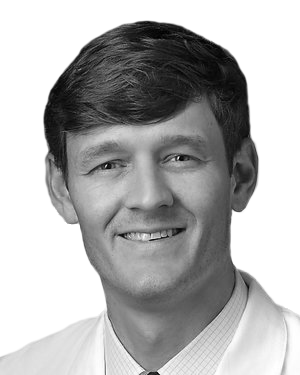
Francis X. Creighton
Associate Professor, Head and Neck Surgery, School of Medicine
Artificial Intelligence-aided Video-based Assessment of Mastoidectomy Surgical Skills
Presented by George Liu
Extended Bio
Coming soon
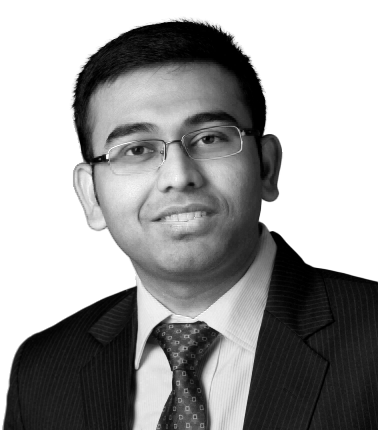
Abhirup Datta
Professor, Biostatistics, Bloomberg School of Public Health
Correcting for Bias and Uncertainty in AI Algorithmic Outputs Used in Global Child Mortality Estimates
Presented by Jiafang Song
Extended Bio
Coming soon
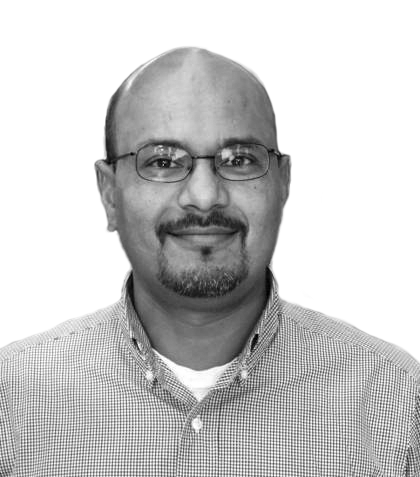
Rajat Mittal
Professor, Mechanical Engineering, Whiting School of Engineering; Medicine-Cardiovascular, School of Medicine
eStomach – A Data-Driven Multiphysics In-Silico Model of the Human Stomach for Application to Bariatric Surgery
Presented by Jung-Hee Seo
Extended Bio
Coming soon
Summer Student Fellowship Speakers
The Summer Student Fellowship (SSF) program offers awards of $6,000 to support summer research projects lead by undergraduate students. Recipients receive the opportunity to participate in a 10-week (June–August) full-time, data science-focused research project in collaboration with an IDIES faculty member.
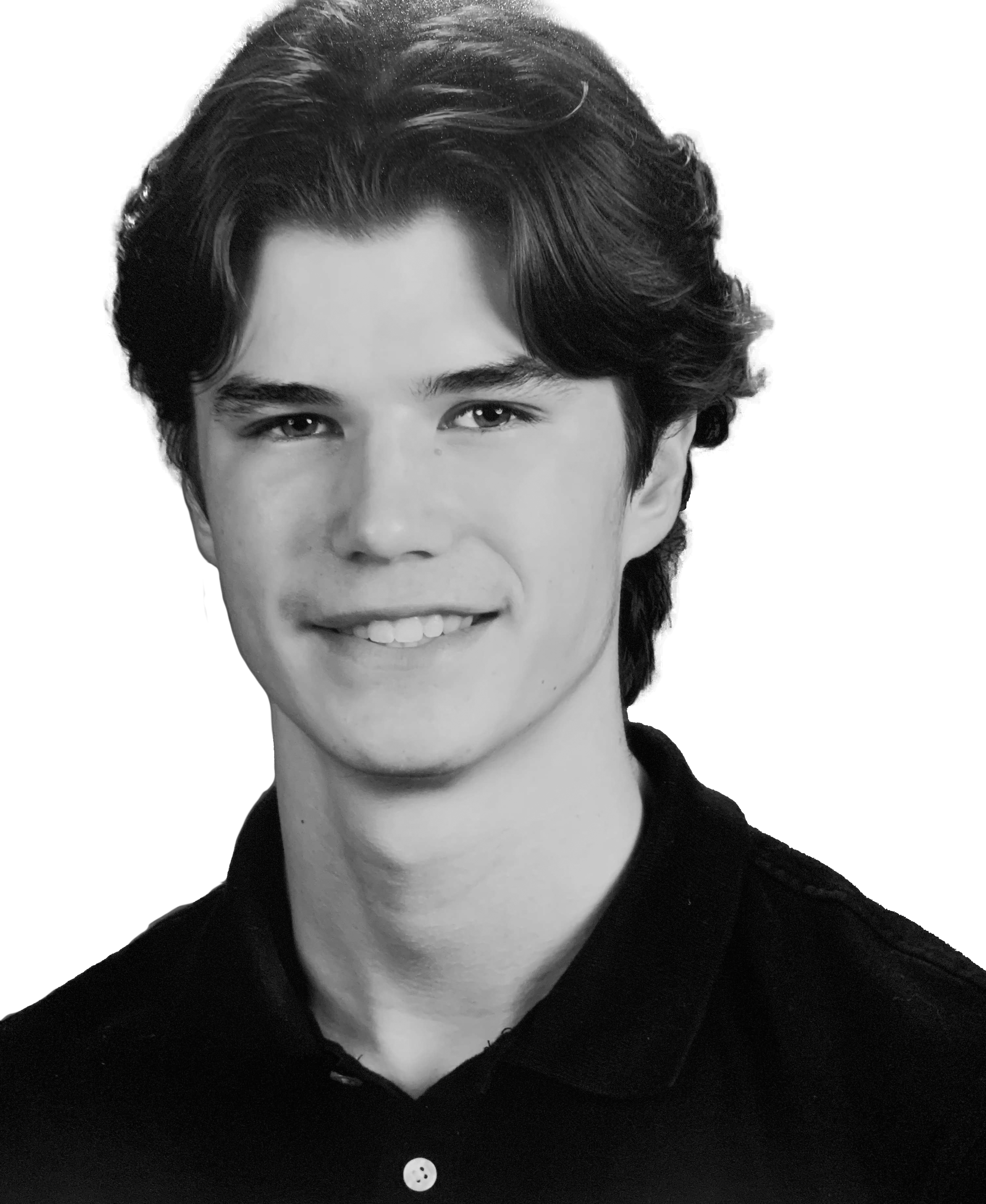
James D’Alleva-BochaIn
Third-year student, Applied Mathematics and Statistics, Whiting School of Engineering
Understanding Learning: An Exploratory Analysis of the Geometry of Neural Network Weights and Activation »
Extended Bio
Coming soon
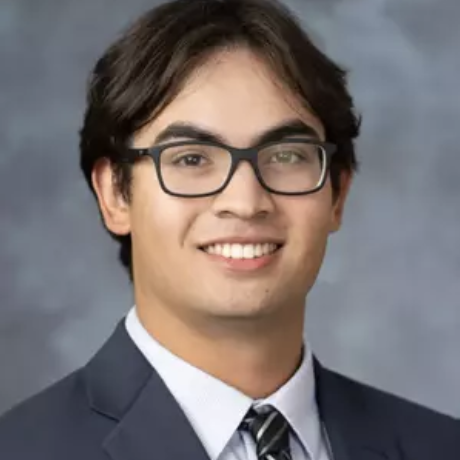
Alex Larson
Fourth-year student, Applied Mathematics and Statistics, Whiting School of Engineering
Enhancing Post-Operative Efficiency in the Neurosciences Critical Care Unit Using Machine Learning and Data Science »
Extended Bio
Coming soon
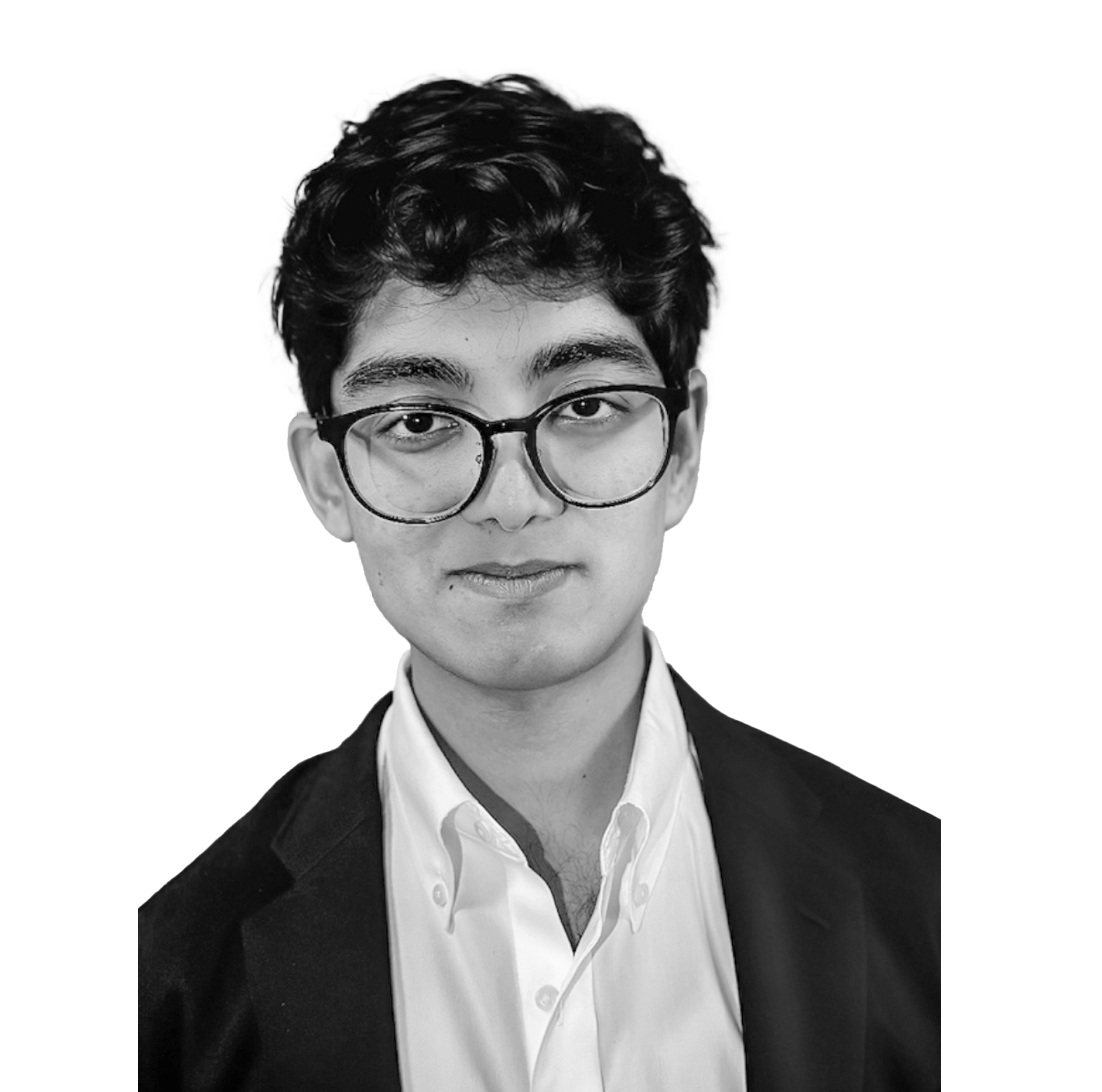
Srisha Nippani
Third-year student, Mathematics, Krieger School of Arts & Sciences
A Non-Parametric Approach for Learning Interaction Laws in Agent-Based Systems »
Extended Bio
Coming soon
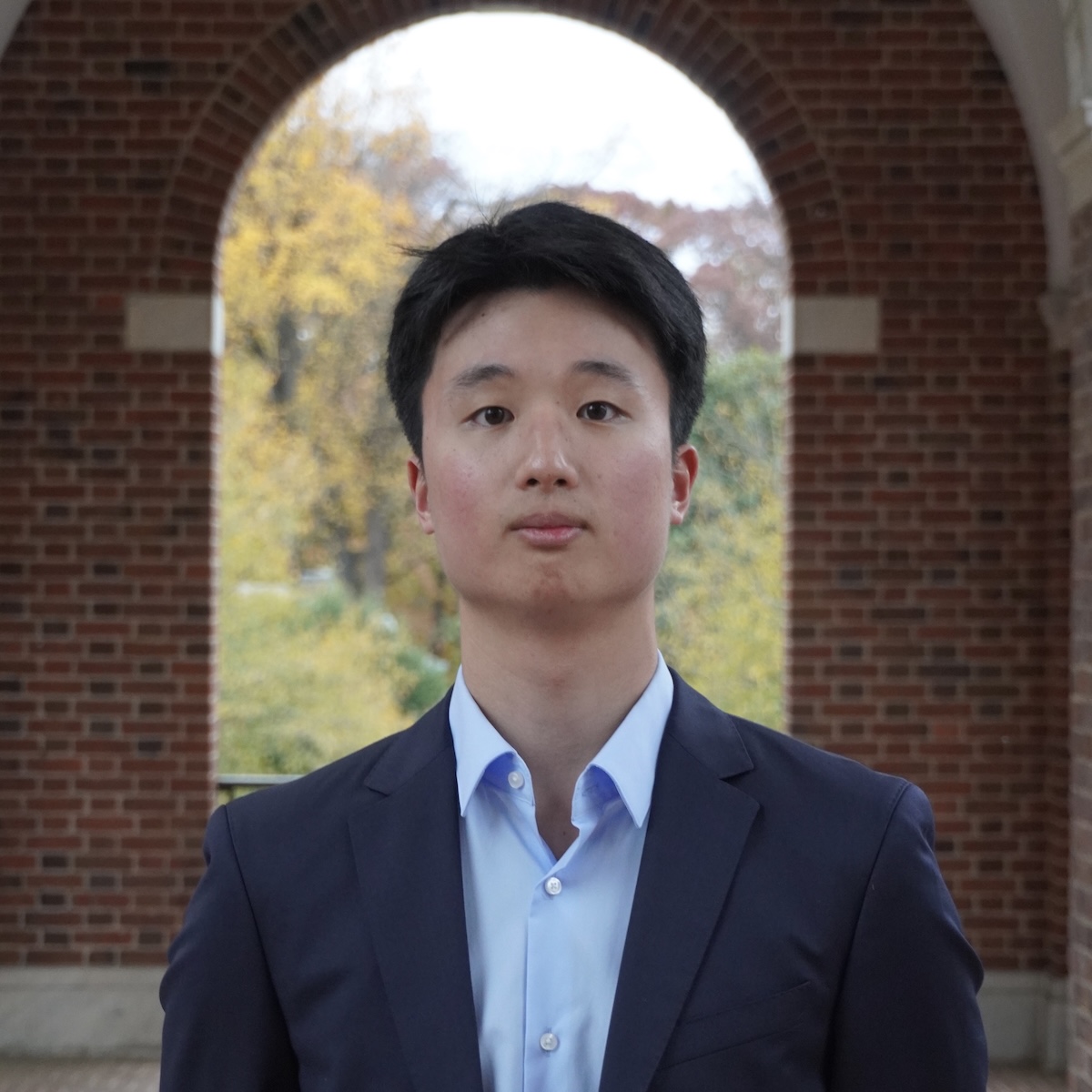
Jooyoung Ryu
Fourth-year student, Computer Science, Whiting School of Engineering
AI-driven Echocardiographic Model for Early Identification of Stress Cardiomyopathy »
Extended Bio
Coming soon


